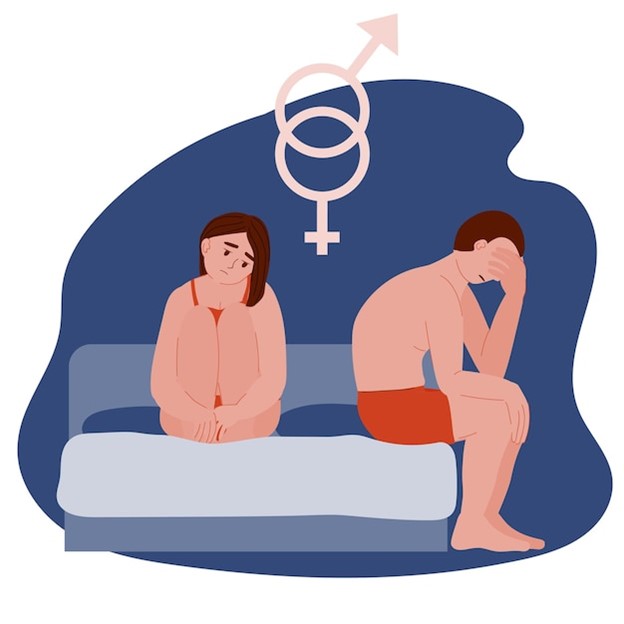Sexual dysfunction is a common issue that can affect individuals of all genders and ages. It refers to persistent problems or difficulties that prevent someone from experiencing satisfaction or pleasure during sexual activity. These issues can have a significant impact on both physical and emotional well-being, as well as relationships. It is essential to recognize the signs of sexual dysfunction and seek appropriate support and treatment. In South Africa, where sexual health is a crucial aspect of overall well-being, understanding these signs becomes even more important. Here are some common signs of sexual dysfunction to be aware of:
- Erectile Dysfunction (ED): Erectile dysfunction is the inability to achieve or maintain an erection sufficient for sexual intercourse. It is often characterized by difficulty getting or keeping an erection, reduced sexual desire, or a lack of firmness. ED can be caused by various factors, including physical conditions, such as diabetes or cardiovascular disease, psychological factors, or lifestyle habits.
- Premature Ejaculation (PE): Premature ejaculation is when a man ejaculates sooner than desired during sexual activity. It may occur before or shortly after penetration, leaving both partners dissatisfied. PE can be caused by psychological factors, such as anxiety or stress, or physical conditions that affect ejaculation control.
- Delayed Ejaculation: Delayed ejaculation refers to the persistent difficulty or inability to reach orgasm, despite adequate stimulation and desire. It may take an extended period or may not occur at all. This condition can be caused by psychological factors, medications, certain health conditions, or hormonal imbalances.
- Female Sexual Dysfunction: Female sexual dysfunction encompasses a range of issues that affect a woman’s ability to experience sexual pleasure. This can include a lack of interest in sex (hypoactive sexual desire disorder), difficulty becoming aroused, inability to achieve orgasm (anorgasmia), or pain during sexual intercourse (dyspareunia). These issues can have physical, psychological, or hormonal causes.
- Loss of Libido: Loss of libido refers to a decreased or complete loss of sexual desire. It can affect individuals of any gender and may be caused by hormonal imbalances, stress, relationship issues, certain medications, or underlying health conditions.
- Painful Intercourse: Pain during sexual intercourse, known as dyspareunia, can be a sign of sexual dysfunction. It may be experienced as a burning, stinging, or sharp pain and can occur before, during, or after intercourse. Dyspareunia can have physical causes, such as infections, hormonal imbalances, or conditions like endometriosis, as well as psychological factors like anxiety or trauma.
Recognizing the signs of sexual dysfunction is an essential step in seeking appropriate help and support. If you or your partner experience any of these signs, it is crucial to consult a healthcare professional or a sexual health specialist. They can conduct a thorough evaluation, discuss potential underlying causes, and develop a personalized treatment plan. Treatment options for sexual dysfunction may include lifestyle changes, counseling or therapy, medications, or other interventions tailored to address specific issues.
In South Africa, sexual health services and resources are available through healthcare facilities, sexual health clinics, and specialized organizations. These institutions offer guidance, counseling, and treatment options to address sexual dysfunction and support individuals and couples in their journey towards improved sexual well-being.
Remember, sexual dysfunction is a common and treatable condition. By recognizing the signs, seeking help, and addressing the underlying causes, individuals can reclaim their sexual health and improve their overall quality of life. Open communication, education, and destigmatization of sexual health issues are crucial in promoting a healthy and fulfilling sexual experience for everyone in South Africa.










